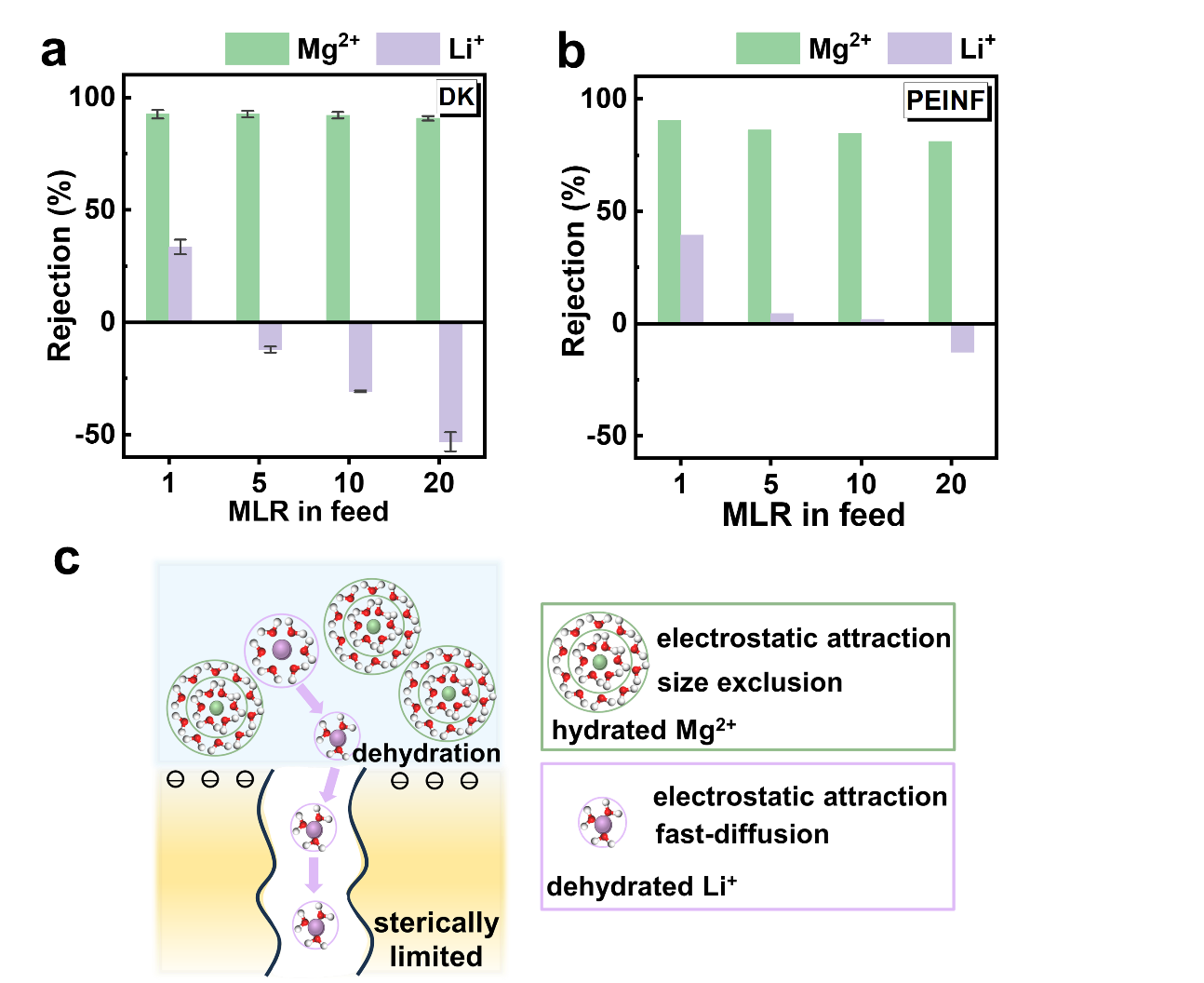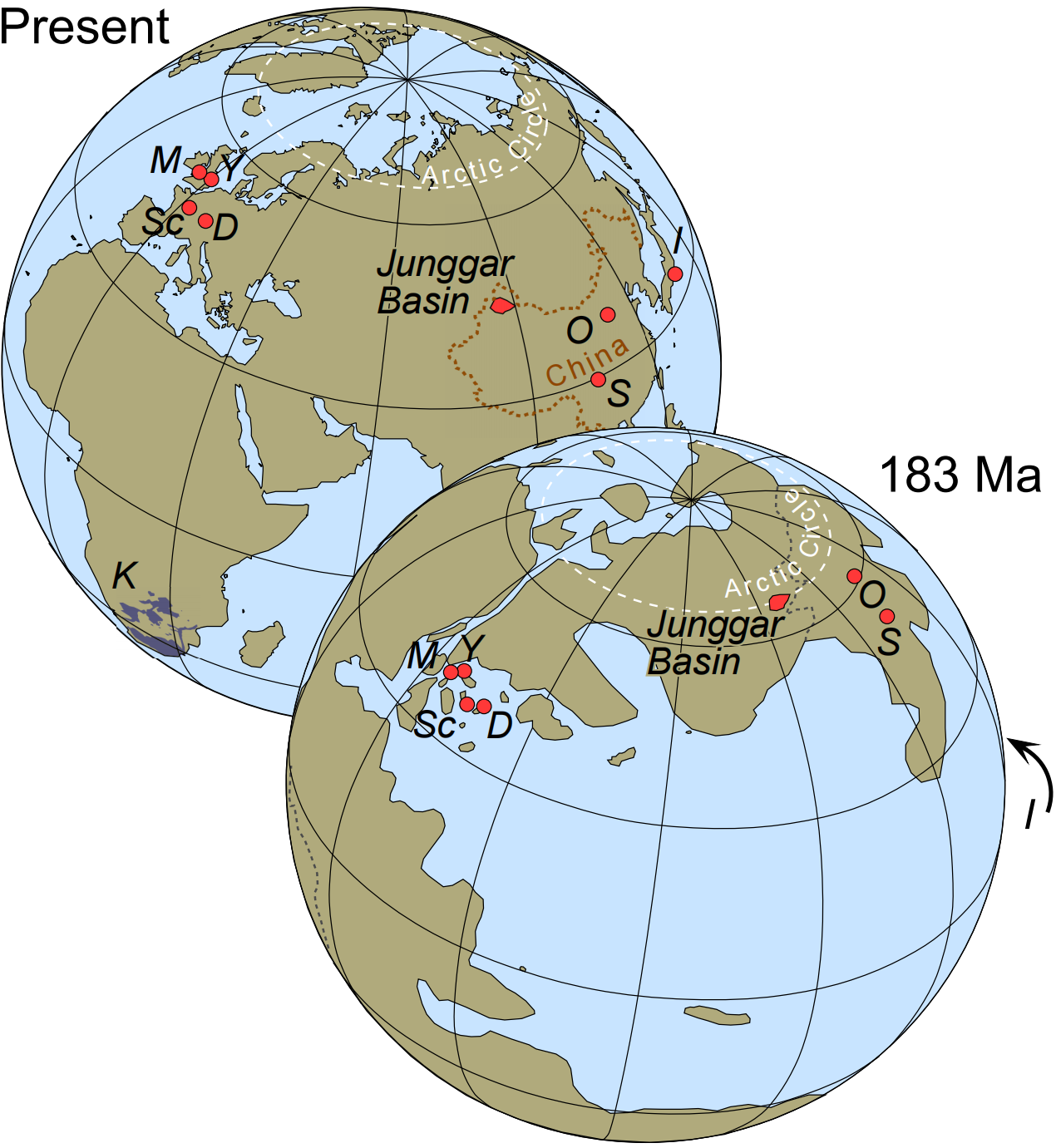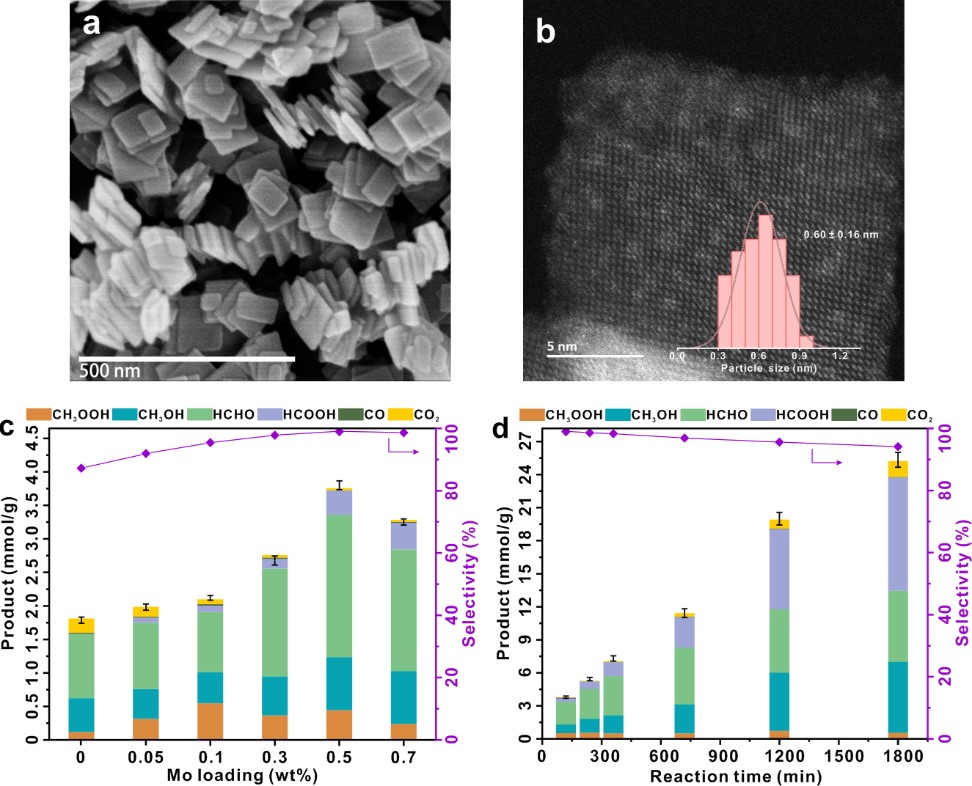2025-07-02 中国科学院(CAS)

Preference of Negatively Charged Membranes in Magnesium and Lithium Separation by Nanofiltration (Image by LIU Lulu)
<関連情報>
- https://english.cas.cn/newsroom/research_news/chem/202506/t20250627_1046332.shtml
- https://www.nature.com/articles/s41467-025-61336-6
ナノろ過によるマグネシウムとリチウムの分離における負電荷膜の優先性 Preference of negatively charged membranes in magnesium and lithium separation by nanofiltration
Lulu Liu,Shihong Lin,Xinyi Xu,Yinhua Wan,Weijie Song & Jianquan Luo
Nature Communications Published:01 July 2025
DOI:https://doi.org/10.1038/s41467-025-61336-6
Abstract
Despite the traditional co-ion competition theory suggesting that positively charged nanofiltration (NF) membranes are best for Li⁺/Mg²⁺ separation, practical applications predominantly utilize negatively charged membranes. Furthermore, most biological ion channels in nature are characterized by negatively charged functional groups. To address this theoretical discrepancy, we conducted a comprehensive study that integrates experimental data with molecular dynamics simulations to explore the transport behavior of Mg²⁺ and Li⁺ through negatively charged NF membranes. When using mixed salt solutions as feed, NF membranes with strong negative charges and small pore sizes achieved a high rejection of Mg²⁺ (>90%), with a Li⁺ rejection as low as −53.2%. This remarkable selectivity is primarily driven by the proposed ion competition mechanism termed counter-ion competition. For weakly hydrated monovalent counter-ions, such as Li⁺, the enrichment of strongly hydrated counter-ions like Mg²⁺ near the membrane pores facilitates the dehydration of Li⁺ at the pore entrance, thereby reducing its size exclusion effect. Simultaneously, this dehydration enhances the electrostatic interaction between Li⁺ and the negatively charged NF membrane, resulting in high permeability of Li⁺. Our work advances the understanding of ion-selective transport in NF membranes, offering mechanistic guidance for developing high-performance NF membranes for Li⁺/Mg²⁺ separation.



